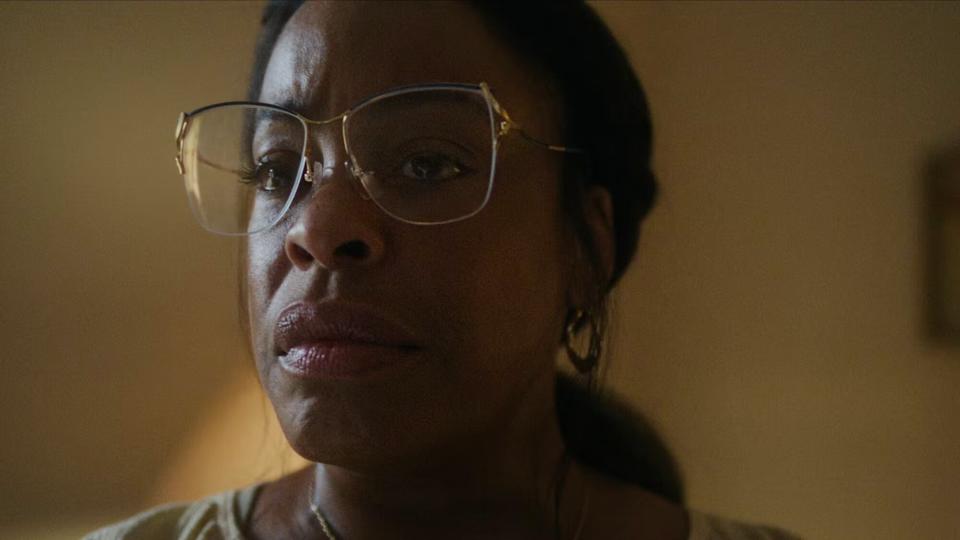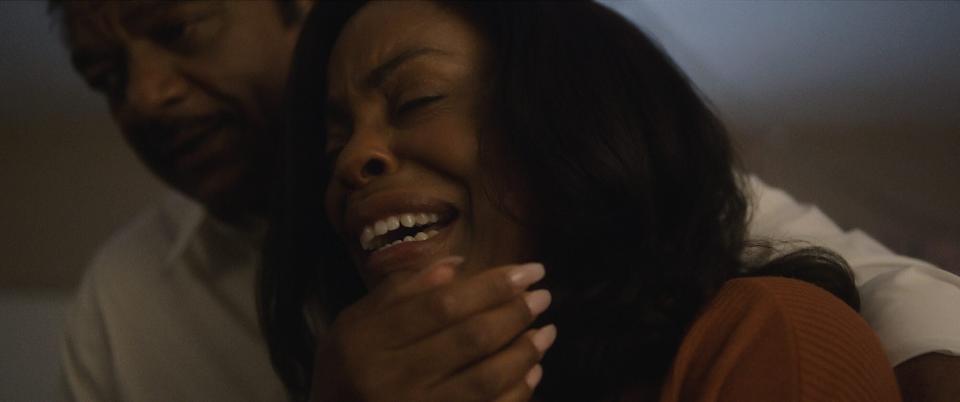Niecy Nash-Betts didn’t know what role — or even what project — she was saying yes to when she got a blind offer for Netflix’s Dahmer — Monster: The Jeffrey Dahmer Story.
“Ryan Murphy called me and said, ‘Hey, I’ve got this thing I want you to do,'” she recalls on EW’s Awardist podcast (recorded prior to the start of the SAG-AFTRA strike). “And I said, ‘Okay, yes, I’ll do it.’ Then I looked at the scripts and was like, oh my God.”
Her reaction wasn’t unwarranted. In fact, Nash-Betts says she quickly realized she would have to put her “big-girl pants on” to play Glenda Cleveland, who suspects that her neighbor, Jeffrey Dahmer (Evan Peters), is killing people in his apartment next door. She hears the fights and yells. She smells the acrid odors of dead bodies. She tries to save one of Dahmer’s eventual victims — 14-year-old Konerak Sinthasomphone — who she finds disoriented and naked outside the apartment building. Her calls to the police aren’t taken very seriously, despite her desperate pleas for help.

Netflix Niecy Nash-Betts in ‘Dahmer — Monster: The Jeffrey Dahmer Story’
It’s not the first time the Reno 911! and Claws alum — who earned her fifth Primetime Emmy Award nomination for her performance in Dahmer — has played a real person, having starred in Ava DuVernay’s movie Selma and the limited series When They See Us, and FX’s Mrs. America. But this one — it’s easy to gather from hearing her speak about Glenda’s efforts to stop Dahmer’s killing spree that primarily targeted young men of color — hit a little closer to home. Nash-Betts’ younger brother was shot to death in 1993, when he was still in high school; several years earlier, her mother survived a shooting during a domestic dispute with her boyfriend.
How do her own experiences factor into whether she will even consider a project that includes victims of violence?
“There is a responsibility I have as a survivor to be a part of storytelling like that because I know — I know the pain, I know the trauma, I know the loss,” Betts-Nash thoughtfully explains. “I still get very, very skittish when it comes to anything that I do that involves me having to shoot a gun or somebody pulling a gun on me. Those things always give me pause. Those are the nights that I don’t sleep before I go to set, because you show up with your full self and your full self includes your own personal trauma. You know what I mean? And my grandmother always says, ‘You pull up and you push through, and you never look like what you’re going through.’ So the part of me that has to step on me in order to stand flatfooted in the art is always a challenge in those types of scenes.”
In Dahmer, the intensity was cranked up in two particular scenes: one was that aforementioned moment when Glenda finds Sinthasomphone (Nash-Betts’ onscreen daughter in the scene is played by her real-life daughter); the other is what has become known as “the sandwich scene,” where Dahmer visits Glenda, bringing her a meat sandwich. He menacingly encourages her to eat it as he watches, knowing she’s on to him; she repeatedly refuses, only making him more furious.
“There was a duality in that scene that, I’m not gonna tell you it’s easy to play for me, but I was up for it,” she says. “I’m like, how do I bake in the elements that let the audience know, please be afraid for me because I’m afraid for me, but let Jeff Dahmer know, try it if you want to ’cause you got the right one on the wrong day? So those are two totally different things that you’re trying to play at the same time.”

Netflix Nigel Gibbs as Jesse Jackson and Niecy Nash-Betts as Glenda Cleveland in ‘Dahmer — Monster: The Jeffrey Dahmer Story’
She later adds of Glenda’s resolute demeanor during their face-to-face: “I looked the devil in the eye and I lived to tell the story, but if he sensed that I was rattley or shaky, there’s no telling what could have happened.”
Listen to Nash-Betts’ full interview, below, where she explains how she escaped Dahmer‘s dark material (Reno 911! had a little something to do with that), why she never intended to go into comedy, and how she got Hollywood to take her seriously.
Check out more from EW’s The Awardist, featuring exclusive interviews, analysis, and our podcast diving into all the highlights from the year’s best in TV.
Related content:
